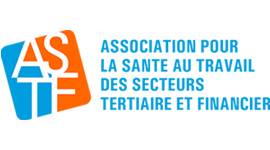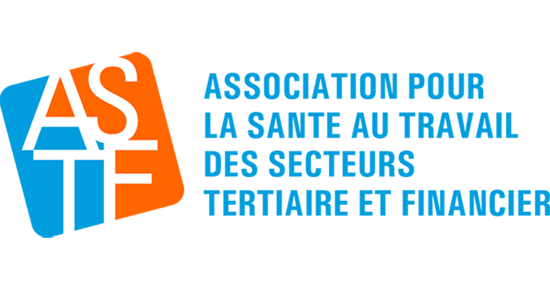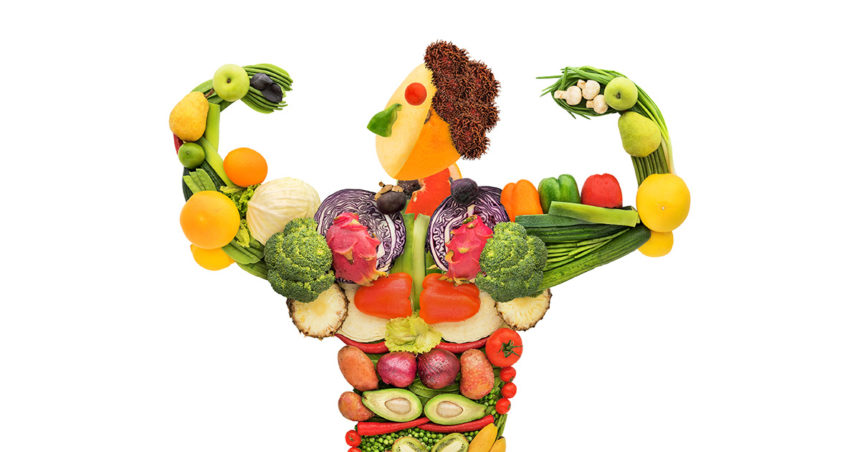To achieve sporting performance, the body needs simple things:
1. WATER
It is better to use still water, as bubbles can cause stomach swelling under certain circumstances, which can cause pain. During one and a half hours of (intensive) training, you usually sweat up to one liter of water. If it’s hot, it’s probably more than that. Drinking one litre of water during training should be enough in most cases. If your body does not have enough fluid, you will notice headaches, concentration problems and muscle cramps.
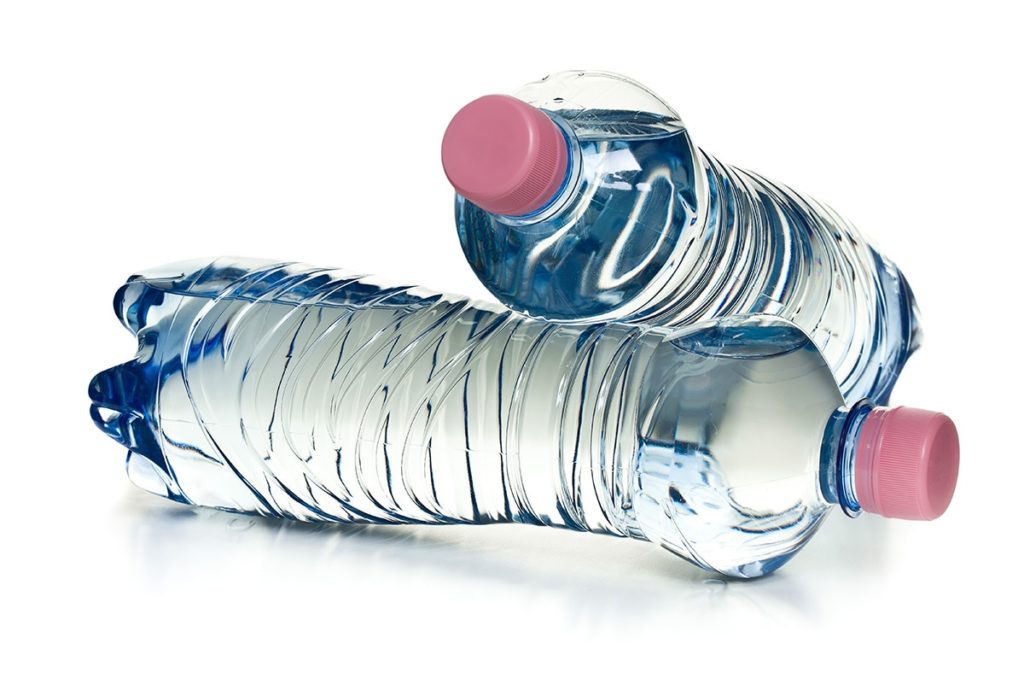
2. ENERGY
The body constantly burns carbohydrates, that is, sugar. When we play sports, we naturally burn more than when we sit on a couch. So you have to give him enough energy before training. Carbohydrates that are slowly resorbed, that is, all whole grain products, as well as durum cooked al dente noodles, couscous, quinoa, bulgur, wheat germ, etc. are best suited for this.
One hour of uninterrupted sport consumes a maximum of 500 kcal. So you don’t need to eat a kilo of pasta (1440 kcal !) for a workout! A small pasta salad with lots of vegetables and a little olive oil and let’s go!
Be careful: fast absorbing carbohydrates such as sodas, energy drinks, energy sticks, dextrose, sweets but also fruit juices… cause high insulin levels in the body, which leads to fat storage! The sugar level will then decrease, and you will feel even worse, which will cause you to take up sugar again. The fact is that you will increase your weight but not your performance!
If the body does not have enough energy for muscle activity, it will use its reserves, i.e. burn its fat. If you want to lose weight, you should not eat too much before training, which will activate fat metabolism. After training, do not eat carbohydrates, as this will immediately stop the burning of fat. Eat legumes or nuts instead. They provide the body with proteins (building blocks of muscles) and essential fatty acids (important for joints).
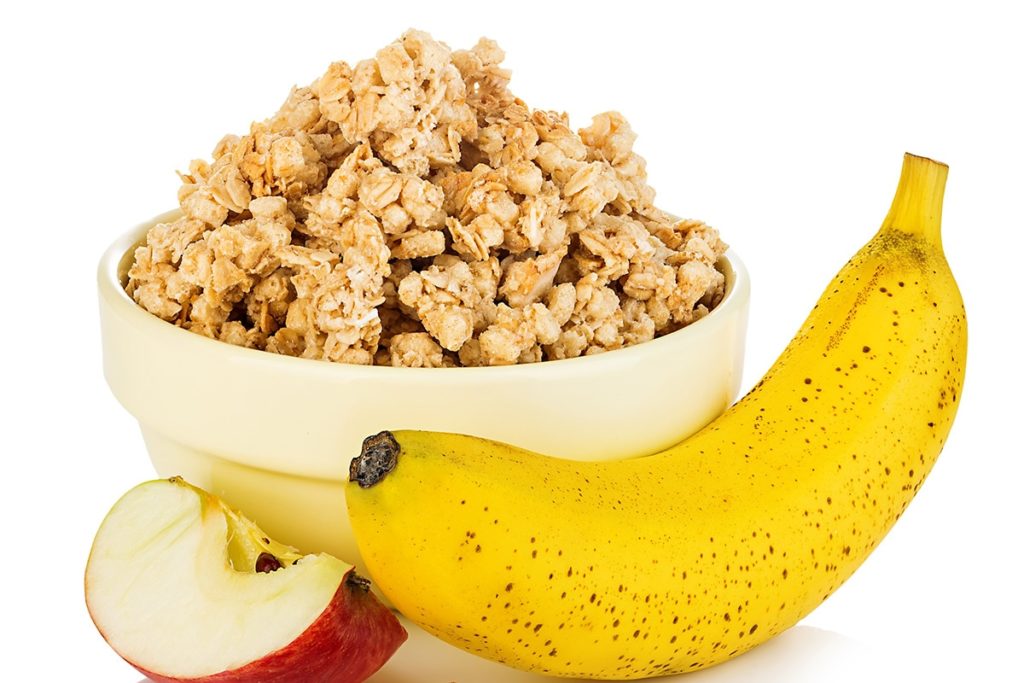
3. PROTEINS
Proteins are building blocks of muscle. So, if you want well-defined arms or a six-pack belly or better, both are needed.
Proteins are found in eggs, legumes, nuts, tofu, fish, meat and dairy products. But you don’t need two kilos a day, unless you want to look like Arnold Schwarzenegger in his best years! For a training session, 100-200 g/day is enough, i.e. a yoghurt in the morning, a portion of fish at lunchtime and an egg in the evening and you are in the green zone!
Caution: not eating anything after exercise is counterproductive.
Because of the exercise stimulus, the muscle wants to grow, but it can only do so if it has enough protein, such as egg white, fish, tofu, lentils, meat, etc.

4. VITAL SUBSTANCES
Vital substances are everything that keeps the body fit and healthy. These include vitamins, minerals, essential amino acids and essential fatty acids. These are all substances that the body cannot produce itself and must absorb through food.
Those who are careful to eat enough fruits and vegetables usually get enough minerals and vitamins.
Those who prepare vegetables with the right oils (soya, olives, rapeseed, nuts) get the essential fatty acids.
And those who eat enough protein get the essential amino acids.
As a vegetarian or vegan, however, you should be careful with iron and vitamin B12. Both are abundant in meat, but if you don’t eat it, you may have deficiencies. Therefore, check their rates regularly. To get enough iron and vitamin B12, a 200 g steak per week is enough. No one needs a T-bone steak a day! (except our friend Arnold).

5. BASIC CONCEPTS
If you want to be healthy you must always eat healthy, not just before and after training! You are what you eat!
A healthy diet means three balanced meals a day:
- A good breakfast with wholemeal bread, fresh cheese, fruit, yoghurt, eggs.
- Beware of cereals, be careful with the sugar content, which should be as low as possible.
- Also, be careful with milk and fruit juices, as they contain as many calories as a glass of coke, even if the food industry deceives you by saying they are good for your health. Basically, you should not drink calories because they do not satisfy you. It is better to eat fruit.
- Beware of fruit yogurt. As a general rule, a fruit yoghurt contains 8% fruit, for example only half a strawberry for a pot of yoghurt. However, they contain 16 g of sugar, which corresponds to 4 cubes of sugar cubes. It is preferable to add fresh fruit to a plain yogurt.
- A good lunch: lots of vegetables, some carbohydrates (one or two potatoes or one or two tablespoons of rice or pasta), a dose of protein, i.e. a (small) piece of fish, meat, tofu or legumes, a fruit for dessert.
- A light dinner: a vegetable soup or a tasty salad, a slice of wholemeal bread, a dairy product (unsweetened!) and fruit for dessert.
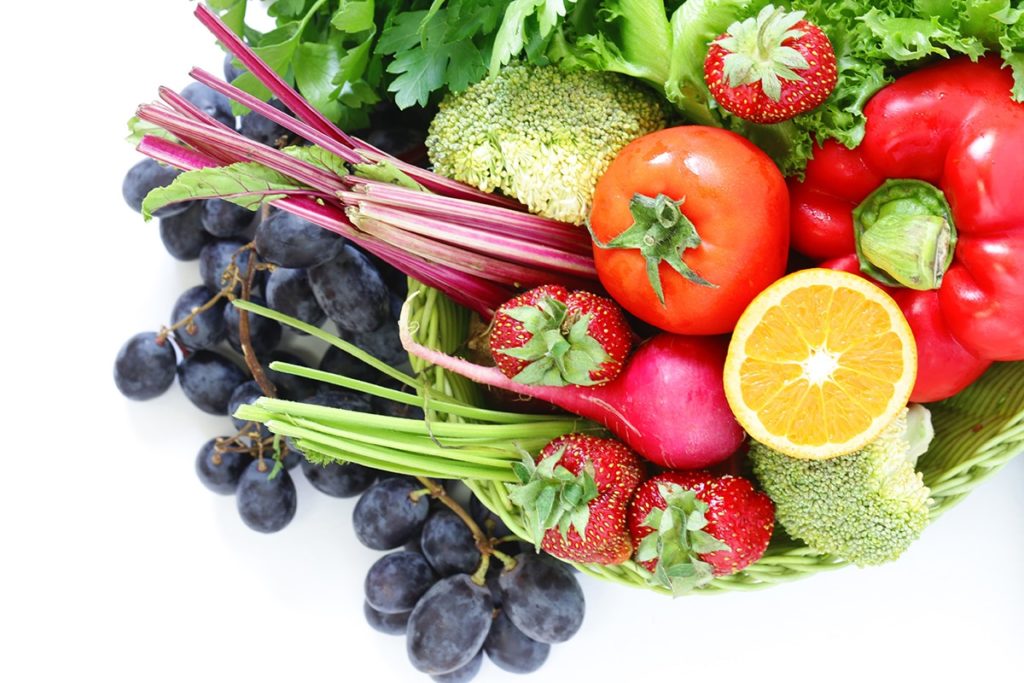
So again, in summary :
- Before training: slow-resorbing carbohydrates in reasonable amounts.
- During training: only water.
- After training: protein, i. e. dried vegetables, nuts, possibly lean meat, fish or eggs and many vital substances – i. e. vegetables.
- Every day: three balanced meals.
- Do not snack in between, no “healthy” snacks either.
- Don’t drink calories, but eat instead, it will satisfy you!
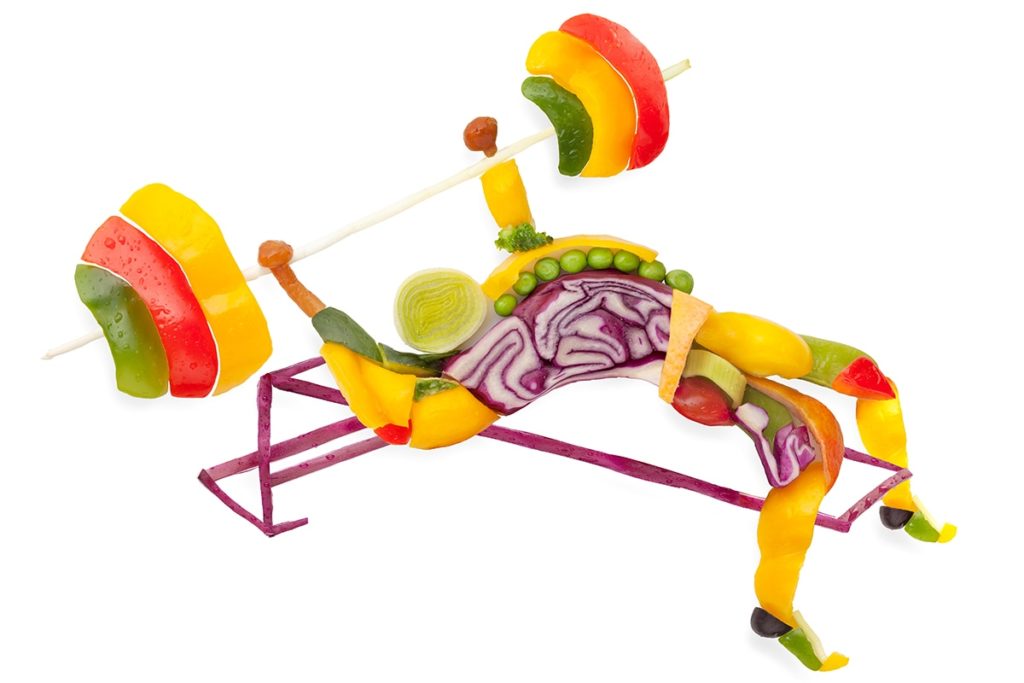
Find this article in PDF and the postere ‘Nutrition for sport‘ to print for your premises.
